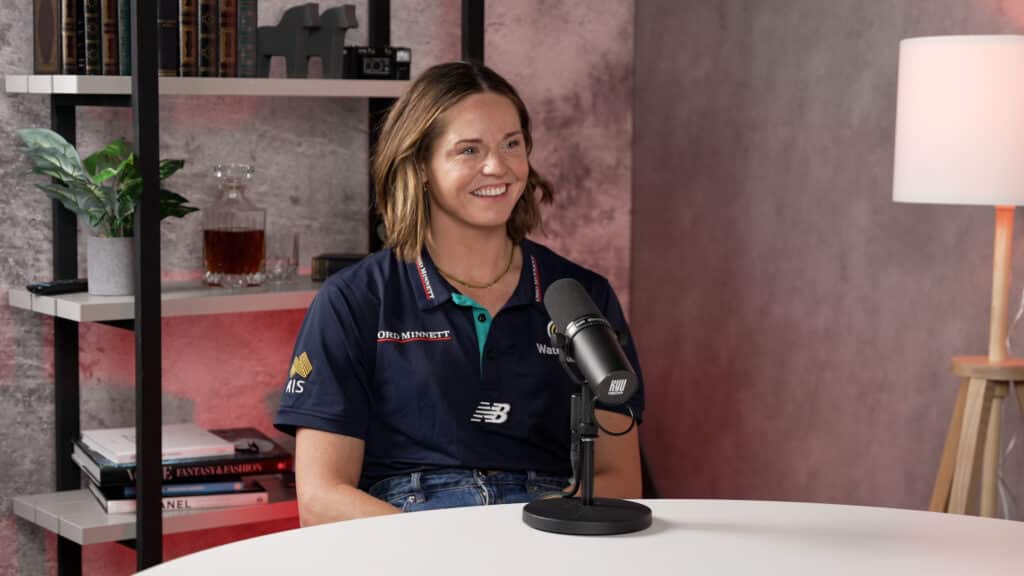More women are competing in the Olympics than ever before, and it means we might be seeing a few more mothers on the podium this year.
In an Olympic first, athletes will have access to a nursery in the Olympic Village, meaning parents can stay close to their children as they prepare and compete.
Keesja Gofers, a member of Australia’s water polo team, will be representing Australia at her third Olympics, but this time around, things will be a little different.
It’s her first Olympic Games as a mother, having given birth to her daughter sixteen months ago.
Gofers speaks to Dinushi Dias on today’s episode of The New Rules, a Women’s Agenda podcast taking you behind the scenes of the rise of women’s sport.
She shares what it was like to plan her pregnancy after the Tokyo Olympics in 2021, knowing it could change the course of her water polo career forever.
“After Tokyo, which was delayed a year… [you’ve] got a small window of opportunity to have a baby and come back,” Gofers shares on the podcast.
“We also suffered a miscarriage – which was really tough. And that took a bit of time to be able to want to try again as well.”
“It’s a painful subject for me – I think it’s very important that we do talk about it because when you go through something like that, you don’t realise how – common it really is.”
After falling pregnant again, Gofers said she had to learn to be ok with perhaps never making a return as a professional athlete.
“I knew that I had to be okay with never coming back because you just – you don’t know how your birth is going to go,” Gofers shares on the podcast.
“The pregnancy journey for me in general – was challenging because as an athlete and, you know, as many people will find this, they’re used to working at something, putting the time in and getting a result. And so I think with pregnancy it’s just really not like that.”
“You don’t have to be sure you’re going to achieve something to go after it.”
What about the logistical challenges facing mothers who are also elite athletes?
When it comes to things like breastfeeding as an elite athlete, Gofers said she entered motherhood totally in the dark about what would be required and how it might change her training in the lead up to the Paris Olympics.
“The logistical challenges of breastfeeding was something I just had no idea about when I was training,” Gofers says.
“We train for two hours and when you first are breastfeeding, that’s like a really long time to not pump or not feed.”
“So I would be, you know, jumping out of the session to pump or I’d be jumping right before I’d get in, because, you know, if you get a bump – polo is a contact sport – if you get a bump in the chest, that was really painful.”
But it was also super motivating to watch her daughter go through developmental changes and have to try new things, Gofers says.
“I got to watch her try and try and fail again and again and again,” she says “So when I was feeling like, you know, training is just too much or it’s too hard, I’d watch her just never give up on something.”
So how did she get through it?
For Gofers, that question has a simple answer: with a lot of help from her family.
“I didn’t know a lot of things and it was such a huge learning curve for me and I really had to learn to be okay to ask for help,” she says.
“But it’s honestly been day by day, sometimes it’s been training session by training session, or nappy by nappy.”
To hear more of the conversation with Keesja Gofers, check out the second episode of Women’s Agenda’s The New Rules podcast. You can find it below, or on Apple Podcasts and Spotify.


